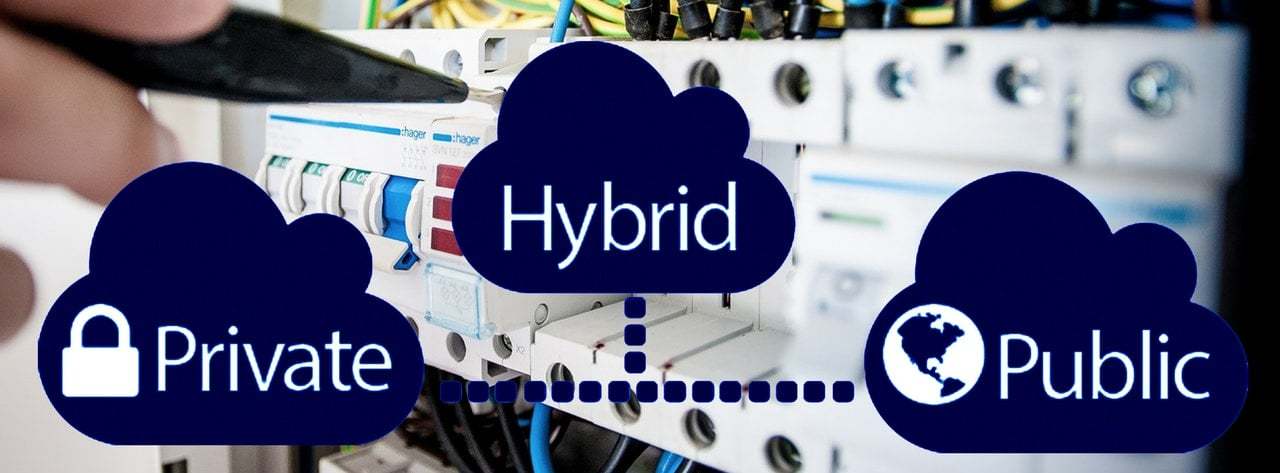In house vs Outsourcing IT Support: Which is The Right Choice for Your Business? When companies find themselves needing to address a specific business need, one question they'll often have...
For non-tech savvy folk a simple definition of 'server' is a good starting point.
A server is a computer or computer programme that manages access to a centralised resource or service in a network.
And without getting into too much detail, all businesses need access to a server to manage specific tasks around data. The word server is understood by most to mean a web server where web pages can be accessed over the internet through a client like a web browser. However, there are several types of servers, including local ones like file servers that store data within an intranet network. For instance, if you want to improve how your business collects and sends emails then a dedicated email server will be your preference. For your particular type of business, you may have large amounts of shared documents in which case a file-sharing server would be the ideal option.
In the past, icons like Alan Sugar and Richard Branson started out with a couple of chairs around a kitchen table. A generation on and pretty much every business has some kind of IT facility and let's be honest, when it is yourself and two colleagues, the business is pretty manageable with off-the-shelf accounting and project management software it's easy to share files and put together the occasional presentation. But then a big client comes into the mix and your business suddenly gets stage fright with everything taking much longer, particularly the minutiae of issues around your computer network. And this is the time to start thinking about a server which acts as a Jack of all IT trades, managing everything on your IT portfolio while you are free to manage and grow your business.
So you have decided you will need a server, but which type do you need? Actually, any computer with appropriate software can function as a server but as with many business decisions, the answers to some simple questions will help you choose the right one.

There is no right answer as each business is different and has different needs. It is also possible that a business will require an on-premise server in its early stages and then migrate to a cloud server (or vice-versa). Many factors are in play here and this topic requires a post on its own, but we'll try to explain the nuts and bolts of it in the next paragraph.
Do you have space in your office to accommodate a physical server? In London for instance, with huge growth in small businesses choosing desk spaces over offices, this is particularly relevant. And London-based businesses have the added issue that every extra inch of space rented is going to push up your monthly cost.
With an on-premise server you'll have to buy the server hardware up-front, which may put a heavy dent in your finance it usually takes three to five years to pay off the server/licenses cost, by which point the server needs to be replaced and with a hefty price tag of servers' hardware ranging anywhere between £5,000 and £25,000 this might not be the right choice for every business.
You'll also need to consider server backup (both on and off-site), a reliable source of internet (to ensure your emails are flowing continuously for example) and last but not least - a reliable power line - if you have no power your server will just not work!
A cloud-based server solves many of the issues with on-premises servers, and usually comes in a form of an all-inclusive package. Cloud based servers are stored in huge data centres, which are very secure, connected to mega fast internet lines and have uninterrupted power lines (backed up by power generators).
It's important to mention that cloud-based servers are always scalable, which means that when your business grows and needs more resources (like disc space, additional memory and so on) you can easily grow your cloud based server with you. It's usually an easy process to change the speicifcations and scale up your cloud based server.
No doubt that more and more businesses are leaning towards cloud-based solutions for their main software and applications. This is one of the fastest growing sectos of the IT industry so it's no wonder that all the big players are investing billions in trying to get everyone onboard their cloud-based platform. But it's important to understand that the big players, like Google, Microsoft and Amazon are all providing a solution which is a Public Cloud.
A public cloud platform means just that: a platform that is hosted on a platform (or an array of virtual servers to be exact). which can be accessed publicly. The other type of cloud-based server is a Private Cloud, which is essentially a cloud-based platform which is not accessible to the public and only accessible to specific businesses that chose a private cloud vendor granting access to their private cloud.
It is one thing to buy an on-premise server, or hire a virtual cloud-based one, but another to install and manage it. And of course, even when it is up and running you have to ensure that it is safe and protected against cyber attacks on your data. At UK IT Service we include unlimited server support as a standard for our managed hosted server subscribers.
As the writer Douglas Adams said: We are stuck with technology when what we really want is just stuff that works.
When you started your business you probably did not factor in servers. Now that your business is growing you need to start thinking about it. This is all about how your business uses data. And from our experience, using the right kind of support in choice and maintenance of servers will ultimately save you money and time.

In house vs Outsourcing IT Support: Which is The Right Choice for Your Business? When companies find themselves needing to address a specific business need, one question they'll often have...

COVID-19: Remote Working for London Businesses - Tools you'll need to Work from Home [Part-2] With the number of COVID-19 (Coronavirus) confirmed cases on the rise in the UK, more...

COVID-19: Remote Working for London Businesses - A Guide to Work from Home [Part-1] With the number of COVID-19 (Coronavirus) confirmed cases on the rise in the UK, more and...